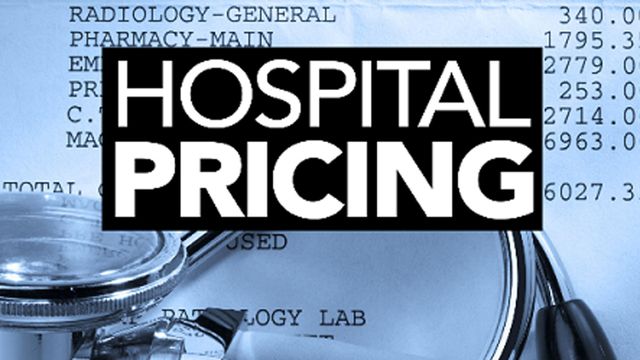Hospital charges going online, but figuring out how much your procedure actually costs will be difficult
Starting next Tuesday, hospitals nationwide will have to be more transparent about their charges, but it remains unclear how much help it will be for consumers.
Posted — UpdatedThe federal mandate calls for hospitals to post online their "gross charges" for every procedure, drug and supply. But the information is a bit misleading because gross charge is a cost that is never paid – insurers, Medicare and Medicaid all negotiate lower prices.
"It's a good first step, but I think the requirements may make it more complicated for a patient," said Rick Carrico, chief financial officer for WakeMed.
Consumers will be scrolling through thousands of codes and costs with little context, Carrico said.
Looking up a code for knee surgery, for example, could include dozens of codes and not include the charges for the anesthesiologist or subsequent physical therapy costs.
"Every hospital's charge master is different," Carrico said, noting that the list charges were created decades ago as a baseline for reimbursement from the government and insurers.
"Everybody is looking for an easy answer – How much is it going to cost?" said Julie Henry, a spokeswoman for the North Carolina Healthcare Association. "There are so many variables that go into what you actually pay, so this information is charges – it's not prices."
For the past five years, the North Carolina Department of Health and Human Services website provided the much of same information. For instance, an MRI on your knee at UNC Rex Healthcare in Raleigh is listed as $2,583 compared with $4,764 at WakeMed.
"This change is a step in the right direction," Austin Vevurka, a spokesman for Blue Cross Blue Shield of North Carolina, said of the federal mandate. "You wouldn’t buy a car without knowing the cost, and health care shouldn’t be any different."
Blue Cross has an online tool that allows anyone to compare pricing for specific procedures by provider and location, Vevurka said. The insurer provides more detailed pricing information to customers.
"Transparency in pricing is at the center efforts to improve quality and lower costs," he said.
Transparency could lead to confusion, however, Henry said.
"The challenge is what is the consumer going to do with that information?" she said.
The hope is consumers will take the next step to have a conversation with their health care providers and insurers.
"That's where the rubber really meets the road. Patients will know what their insurance plan would compensate the hospital and then what they would owe afterward," Carrico said.
Hospitals like WakeMed have account executives ready to talk real pricing, he said.
Related Topics
• Credits
Copyright 2024 by Capitol Broadcasting Company. All rights reserved. This material may not be published, broadcast, rewritten or redistributed.






